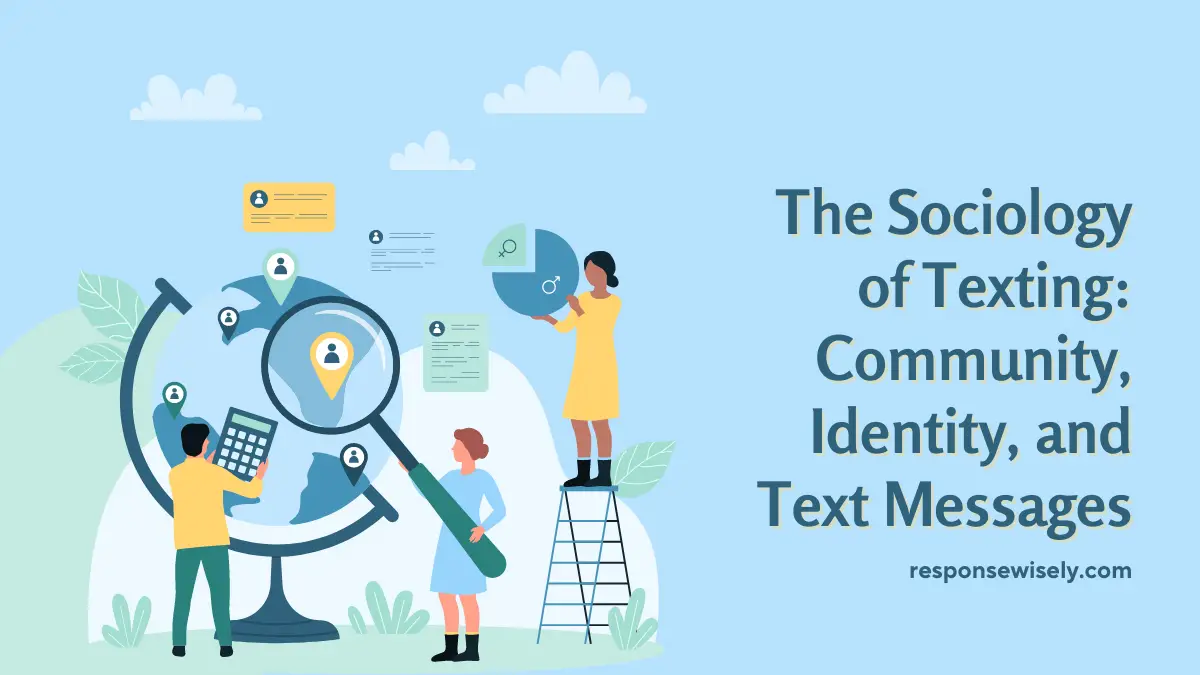Texting has revolutionized the way we communicate in the digital age. From emojis to abbreviations, every text we send reflects a piece of our identity. As I investigate into the sociology of texting, I uncover how these messages shape our sense of community and belonging.
In this text, I explore the intricate web of relationships woven through text messages. Each “lol” and “brb” carries meaning beyond words, defining our social connections and group identities. Join me on this journey through the hidden world of text communication.
The Sociology of Texting: Community, Identity, and Text Messages
When delving into the world of texting, it’s fascinating to uncover how text messages can have a significant impact on our sense of community and identity. The way we communicate through texts reflects not only our personal style but also our connection to various social groups.
Phrases like “lol” and “brb” have become ingrained in our daily texting habits, serving as social cues that help us navigate conversations and convey emotions. These simple abbreviations may seem trivial, but they play a crucial role in fostering a sense of belonging within our digital communities.
Texting has not only revolutionized the way we communicate but has also shaped the dynamics of relationships and social interactions. Through text messages, we can maintain connections with friends and family, share moments of joy and comfort, and express our thoughts and feelings in real-time.
In modern digital era, where we are constantly connected through our devices, understanding the sociology of texting is more important than ever. By analyzing the nuances of text messages and the impact they have on our social interactions, we can gain valuable insights into the complex web of relationships that define our modern world.
Impact of Texting on Social Interactions
Influence on Communication Styles
Texting has transformed the way we communicate, shaping our interaction styles. Emojis and abbreviations have become integral to expressing emotions and thoughts quickly. It’s efficient but also influences how we convey tone and intention.
Formation of Virtual Communities
Through texting, virtual communities have thrived. Group chats and messaging apps create spaces for shared interests, jokes, and support networks. They bridge physical gaps, fostering a sense of belonging and camaraderie.
Texting Etiquette and Norms
Cultural Variations in Texting Practices
In different cultures, texting norms and behaviors vary greatly, influencing how messages are interpreted. Understanding these cultural nuances is crucial in effective communication via text.
Role of Language and Emojis in Texting
The use of language and emojis in texts can significantly impact how messages are perceived. Emojis, in particular, are powerful tools for conveying emotions and bridging the gap in text-based conversations.
Psychological Effects of Texting
Mental Health Implications
Texting plays a significant role in mental health. The constant digital connection can impact anxiety levels and stress.
Attachment and Relationships
Texting can strengthen bonds but also create dependency and affect face-to-face interactions.
I’m diving into the intriguing dynamics of how texting influences our psychology.
Key Takeaways
- Text messages play a pivotal role in shaping our sense of community and identity, reflecting our personal style and social connections.
- Abbreviations and emojis in texts serve as social cues that foster a sense of belonging within digital communities.
- Texting has revolutionized communication styles, influencing how we convey emotions and thoughts quickly and efficiently.
- Messaging apps and group chats have led to the formation of virtual communities, bridging physical gaps and nurturing camaraderie.
- Cultural variations in texting practices impact how messages are interpreted, emphasizing the importance of understanding these nuances for effective communication.
- Emojis and language usage in texts can significantly influence message perception, serving as powerful tools for conveying emotions and enhancing text-based conversations.
Conclusion
Texting plays a significant role in shaping our psychological well-being and interpersonal relationships. The constant digital connection through text messages can impact mental health by increasing anxiety and stress levels. It serves as a tool that can either strengthen bonds between individuals or create a sense of dependency that might affect face-to-face interactions. Recognizing these dynamics is essential for understanding the profound influence of texting on our psychology and social connections.
Frequently Asked Questions
Is texting bad for your mental health?
Texting can have negative effects on mental health by increasing anxiety and stress from constant digital communication. It is important to balance screen time with offline activities for mental well-being.
Can texting improve relationships?
Texting can strengthen relationships by fostering connections and enhancing communication between individuals. It allows for constant contact and sharing of thoughts, which can positively impact relationships.
Does texting affect face-to-face interactions?
Excessive texting can create dependency and affect face-to-face interactions by reducing in-person communication skills and altering the dynamics of personal relationships. Balancing digital communication with offline interactions is essential.

